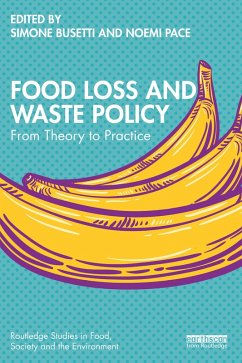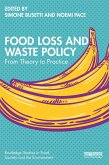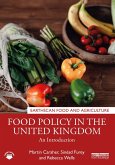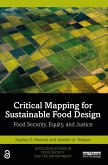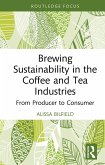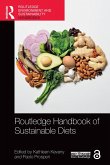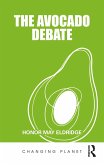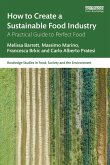Dieser Download kann aus rechtlichen Gründen nur mit Rechnungsadresse in A, B, BG, CY, CZ, D, DK, EW, E, FIN, F, GR, HR, H, IRL, I, LT, L, LR, M, NL, PL, P, R, S, SLO, SK ausgeliefert werden.
Hinweis: Dieser Artikel kann nur an eine deutsche Lieferadresse ausgeliefert werden.
Ervin Prifti, Senior Economist, International Monetary Fund
"This book deals with a topic of great relevance and interest, such as food loss and waste. With the participation of scholars and experts at the international and national level, it offers a broad and in-depth picture, combining contributions to the theoretical and methodological framework with analyses of policies and programmes at the national, international and local scale. A must-read if you want to have an up-to-date, comprehensive, and passionate look at the subject of food loss and waste."
Egidio Dansero, Professor of Political and Economic Geography, University of Turin, Italy & Coordinator of the Italian Network for Local policies of Food
"I have read this book with great interest, and it has been very useful for my work as a teacher and researcher. This book examines the political responses to a critical issue that currently constitutes a challenge for humanity, such as food loss and waste, which accounts for 30% of world production. The book is of great value, not only for its content but also for its approach: (1) it has an interdisciplinary perspective; (2) it incorporates the application of a wide variety of methodological approaches, including quantitative and qualitative techniques; (3) it is based on in-depth case studies and action research, with a broad geographic scope. I am sure it will greatly interest students and academics working in the food and public policy fields, and I also believe it can be very useful to professionals designing and implementing public policies for preventing food loss and waste."
María Ángeles Huete García, Professor of Sociology, Universidad Pablo de Olavide de Sevilla, Spain
"Suppose you are interested in a policy approach to understanding why FLW policy succeeds or fails. In that case, you need to read this book. Foremost, it expands our understanding of the multiple goals of FLW programs and provides insights into the complexity of policy-making when addressing wicked issues intersecting with safety, circularity, and poverty. Collecting various case studies in different countries and national and local contexts, the authors provide a bright and easily readable volume, light on the technical/legal aspects of the matter. This book can be a valuable resource for scholars and practitioners to design and improve food policy's social, economic, and environmental sustainability."
Maria Stella Righettini, Professor of Public Policy. University of Padua, Italy

